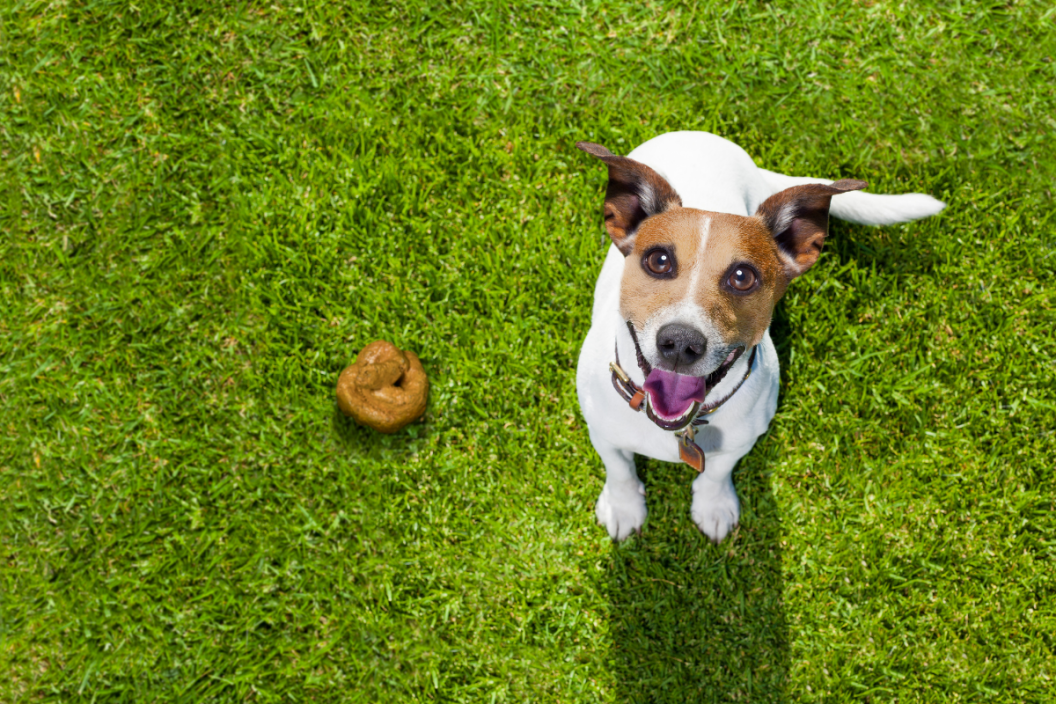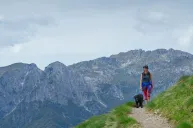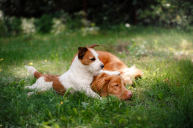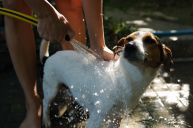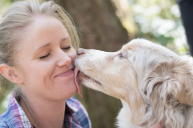Dogs roll around in a lot of weird places, but why did it have to be poop?!
If you've ever brought your dog to a dog park or taken him on a walk on a popular hiking trail, you've probably seen him suddenly drop to the ground to roll and roll enthusiastically. Problem is, once you got closer, you may have also discovered that your dog was delightedly rolling around in a pile of poo — or, sometimes even worse, a dead animal.
Along with eating poop, rolling in poop is a common and unwanted dog behavior, but that doesn't really make you feel any better when you're driving home with a smelly dog in your car. To humans, rolling in poop seems crazy, but to dogs, it makes perfect sense. Here are just a few reasons why you may see your dog rolling in feces, dead fish, or any other dead animal.
Why Do Dogs Roll in Poop?
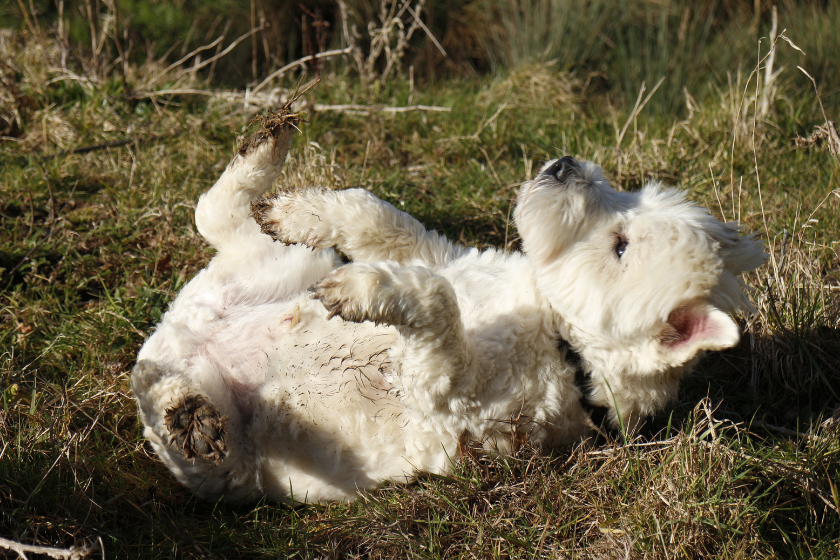
Dogs want to cover their scent.
Dogs are known for having a great sense of smell, so you'd think that they'd want to avoid the strong scent of poop. But, that sense of smell might be one of the driving factors behind this behavior.
According to the Canine Journal, dogs may roll in poop to cover up their own scent and help them to hunt better. It's possible that dogs find this smell desirable, and may also think that covering their own smell with this poop scent can help them to sneak up on their prey or to hide themselves from other predators. This scent rolling behavior may be second-nature to a dog, but, naturally, dog owners don't appreciate dogs rolling in stinky stuff.
Dogs want to bring information to their packs.
Pat Goodman, a researcher at Wolf Park in Indiana, told the American Kennel Club that she has another theory. Goodman believes that dogs may be mimicking this behavior demonstrated by wolves. Goodman thinks that wolves may roll in poop not because it's a way of disguising their scent, but because it's a way of bringing that scent back to the rest of the pack. If wolves roll in dead things, they can share the fact that they found these dead animals with their pack by carrying the smell back with them. Wolves may be sharing information about their environment through this behavior, or just making it easier to find a kill that they abandoned.
Behaviorist Simon Gadbois also noted that wolves may roll in these smelly things for the social aspect. When a pack of wolves all rolls in the same scent, they establish a group smell which can contribute to solidarity or a sense of togetherness for the pack.
It's possible that your dog is just following his instincts and rolling in this delightful, smelly stuff as a result.
How to Keep Your Dog From Rolling in Poop
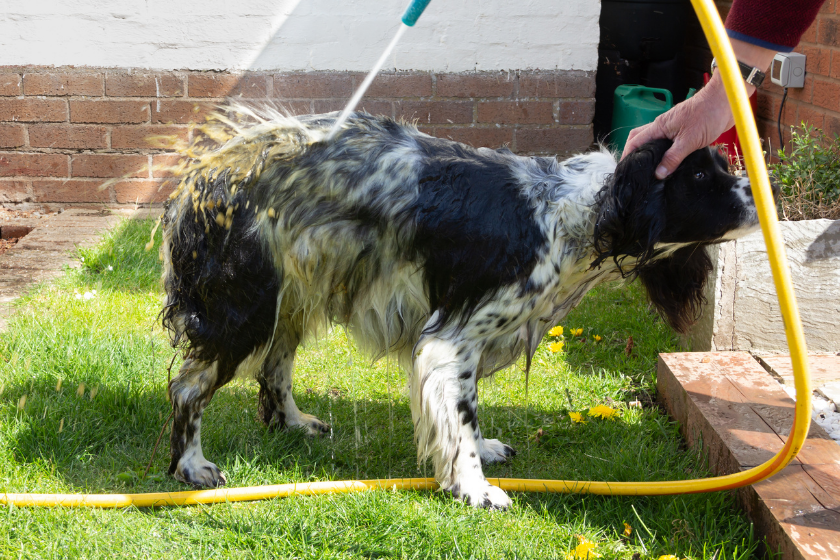
Answering the question, "Why do dogs roll in poop," is complicated, and we may never truly understand what's driving this behavior, but there are ways that you can prevent it.
Pedigree recommends that if your dog rolls in poop at home, you clean up after him in your yard so there isn't poop for him to roll in. When you're out on walks, keep your dog on a short leash with a quality harness and don't let him stop to smell another dog's poop or other stinky things.
Pet MD recommends that you teach your dog a "leave it" command in which he is expected to walk away from whatever object he's focused on when you give that command. You'll need to teach your dog this command well ahead of time, and you'll need to time the command well so that you catch your dog before he actually goes to roll. Rewarding them with homemade dog treats or with a favorite toy can reinforce that he did the right thing by leaving the poop, and will encourage him to repeat that behavior again in the future.
There are bound to be slip-ups, so if your dog does roll in poop, be prepared. Keep dog shampoo at the ready at home, or be prepared to make a trip to the dog groomer for a refreshing bath.
Remember that rolling in poop is a natural behavior for your dog, so don't punish him, but do try to redirect him. With time and training, you should be able to keep your dog out of poop, animal carcasses, and other smelly things.
Does your dog do some really weird stuff? Share with us on our Wide Open Pets Facebook!
This article was originally published November 14, 2019.
